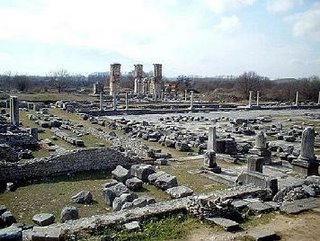Theology From Demons

"It happened that as we were going to the place of prayer, a slave-girl having a spirit of divination met us, who was bringing her masters much profit by fortune-telling.
Following after Paul and us, she kept crying out, saying, 'These men are bond-servants of the Most High God, who are proclaiming to you the way of salvation.'
She continued doing this for many days. But Paul was greatly annoyed, and turned and said to the spirit, 'I command you in the name of Jesus Christ to come out of her!' And it came out at that very moment."
Acts 16:16-18
In the book of Acts Paul and Silas were traveling to pray. Along the way they found a slave-girl who began shouting claims about the people traveling with Paul. Here are her words:
"These men are bond-servants of the Most High God, who are proclaiming to you the way of salvation."
Was she correct? Were her claims true or false? If you wrote it on a piece of paper and sent copies to every major Christian theologian in every major city, would they agree or disagree with this woman's claims?
Sure, she was possessed by a demon ... but she had true things to say. Isn't that what every major Bible analyst says matters most? C.S. Lewis claims* being a Christian is just a matter of agreeing with the claims of the Bible. And was not the slave-girl doing just this?
Why was Paul greatly annoyed? Didn't he care primarily about having correct doctrine?
No.
Here the demonic voice was not expressed by a lack of knowledge. The voice was in the distance between this person's knowledge and her lifestyle. How serious was the slave girl about her claims? Did she cry out because she wanted to find the 'way of salvation'? Or was it to show off what knowledge the demons had given her?
Sadly, I think a lot of theology is done simply to show off one's knowledge. So often it is a performance to show how much a person knows.
But does it matter to them?
Do our opinions matter to us when we give them?
* ("The name Christians was first given at Antioch to the 'disciples', to those who accepted the teaching of the apostles" Mere Christianity, XIV). Doesn't Christian mean 'little Christ'? If so, being a Christian has less to do with which doctrine a person accepts and more to do with who they are.
Labels: Bible Reflection


1 Comments:
This post is in part a response to a post at disjectamembra.
Dr. Sanders - a man who I greatly respect - is saying mere orthodoxy is not enough and neither is mere devotion enough. He advocates what he calls a 'devotional theology'.
My claim is quite simply that all the laws and all the doctrines hang on love. John says quite clearly that he who loves is born of God. There is no qualification about doctrine - a distant secondary task.
To paraphrase R.A. Torrey, Scripture needs to be taught in Scripture proportions. If you add the number of times the New Testament references love and contrast it with the number of times the word "doctrine" appears, you will have a loose understanding of my meaning.
Post a Comment
<< Home